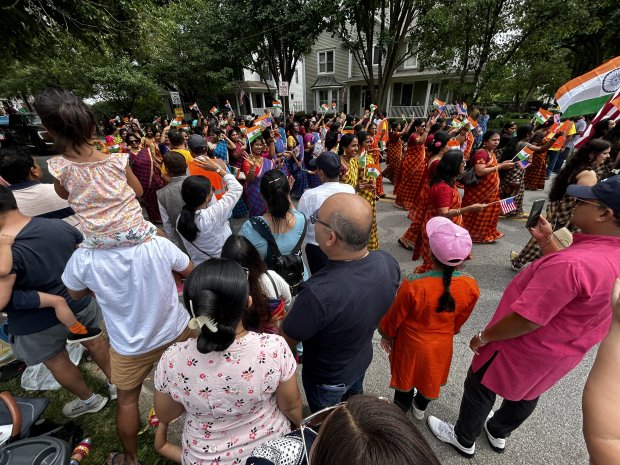There’s an argument to be made that PJ Harvey, the English singer-songwriter-musician-poet-composer-performance artist, deserves a spot on the Mount Rushmore of unwavering lyricist poets, beside Dylan, Rakim, Lou Reed and Kris Kristofferson, who died Saturday at 88. You have your Mount Rushmore. Mine’s shrouded in mist all day.
Overcast on a good day. Kristofferson, in outlaw mode, alongside Harvey, looking windswept and autumnal, would have made a killer pairing for an earthy musical of “Wuthering Heights.” She’s two parts Brontë, one part Howlin’ Wolf. Though never quite a household name in this country, you’ve likely heard her 1995 hit “Down by the Water,” still a decent distillation of her work: It starts in a near trance, centered around a deep, pulsing organ, veers into strings, tells the tale of a mother who drowns her child, then wraps on Harvey, with a horror-villain snarl, repeatedly whispering a nursery rhyme:
Little fish, big fish, swimming in the water / Come back here, man, give me my daughter.
Harvey played a very sold-out Salt Shed on Monday night — part of her first United States tour in almost a decade — and she saved that one for near the end of the set and I can still see the final seconds of her performance: As she sang the last “Give me my daughter,” she uncurled one of her long arms and seemed to push outward, into the audience, just as the lights cut to black. It was harrowing theater, edited in real-time. Not a movement, not a single chord, looked unaccounted for. Every moment felt intentional, every swoon scripted. As her stage show lays bare, like Dylan and the rest of my Rushmore, she inhabits roles, sliding in and out of parts, yet stays herself, often intimately and unnervingly so.
“Down by the Water,” for instance, is representative of that intensity, but it’s not a great example of her sound — indeed, there really is no PJ Harvey song to capture her range.
She’s gone, in 30-plus years, from ‘90s indie angst to ghostly soundscapes so minimal and full of mossy environmental poetry that they might qualify at times as ambient. Take the centerpiece of Monday’s show, “I Inside the Old Year Dying,” her new album. It was played track for track, in sequence. And I mean performed. It’s an adaptation of an epic poem (“Orlam”) that Harvey published as a book a couple of years back, a very rustic ode to an English childhood of dense woods, beds of rotting leaves, ancient paths cut into cliffs and Elvis Presley lyrics. As a set of songs, it makes for brief atmospheric snapshots, some John Carpenter ominous, others Brian Eno ethereal, but gothic enough to sound as if they might have been forgotten folk ballads, several centuries old.
Performing this against a backdrop stark enough for a Beckett production, Harvey glided across the stage like a dancer, swanning upwards, crumbling in heaps, searching the audience with a theatrical panic, twisting dramatically, lifting her face angelically into overhead spotlights, a little Merce Cunningham here, a bit of Renaissance faire there. Songs would end and Harvey would pause as ambient sounds of owls and distant trains filled the stillness. It was theater, complete with stagehands scurrying in the darkness.
Considering the number of people yelling “WE LOVE YOU POLLY JEAN!” whenever the band retreated into a bare beat or deliberate pace — which was often — “I Inside the Old Year Dying” may be a difficult work from an already challenging artist. Yet Harvey keeps such mesmerizing control, you’re swallowed eventually, almost hypnotized. It’s hard to turn away as she unfurls her arms like a shaman and that band, led by longtime collaborator John Parish, finds a link between the sparest folk and the grimmest blues. Dirges merge seamlessly into bugle calls. Harvey’s remarkably fluid voice trails away with a drama of a torch singer. Her touching acoustic song “The Desperate Kingdom of Love” — dedicated to late Chicago impresario Steve Albini, who produced Harvey’s major label debut, “Rid of Me” — was borderline country, complete with Biblical imagery.
Except this is pagan music. Whenever possible, it should be played at the edge of a cliff, at three in the morning, waves crashing beneath, clouds threatening. As Harvey sang near the end of the first set of songs, “Swifts abandon autumn’s ache” and rooks soar over corn and the “death of summer, death of play, waxing night, dwindling day.”
It was not a rock concert.
It was a welcome to October.
cborrelli@chicagotribune.com



